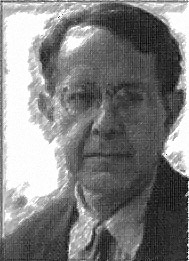The Educational Theory of Jonathan Kozol
Analyst: Carol Bove |
 |
©2006 NewFoundations
The Educational Theory of Jonathan Kozol
Analyst: Carol Bove |
 |
Jonathan Kozol maintains that universal literacy and education are necessary for living a richer, better informed life. He calls for an educational system that enhances the “American Dream” and allows for social mobility and economic success. (Kozol,1985 b) He questions how our society can expect to survive when under-privileged urban children are not being given the same chances to compete equally with children who do not attend urban schools. He cries out that we need to do away with the idea of literacy as a training for domestication, contrived to fill existent or imagined lower level job slots and consumer roles. (1985 b)
Kozol believes that knowledge is acquired through literacy skills, which in return shapes the kind of person one is. He states that we learn more through reading and writing than we acquire through other media, with the exception of social interaction. “Literacy is the very bedrock of our civilization.” He regards the ability to read as a hard survival skill, needed by a citizen so that he can perform the functions necessary for everyday existence. (1985 b)
Children learn best in a socially integrated environment where social interaction can be modeled. It is in this environment that students will be challenged to rise to a higher level of expectation. However, basic needs must be satisfied before we can expect children to be receptive to that which we would have them learn. (1967 a)
Kozol believes that liberal education in our inner-city schools has been increasingly replaced by “culturally barren and robotic methods of instruction that would be rejected out of hand by schools that serve the mainstream of society." (2005 f) Creative learning activities are discouraged. (1967 a) Jonathan Kozol believes that students should be taught in integrated schools that stress humanities, political awareness and the importance of critical thinking. Inequities in education must be addressed with the underlying belief that every child has the potential to achieve his/her dreams. Teachers and students must all be able to work and learn in optimum conditions that safeguard and ensure dignity. (2000 d) Kozol raises the questions of what teaching and schools are for: maintaining an inequitable status quo or achieving a vibrant democracy that all students (and teachers) feel they can enter into.(1981 c)
Knowledge is passed on through instruction and imitation. It is also acquired by demonstrating the ability to apply what has been learned. People are shaped by their environment and culture. (1991 e)
In virtually every society, social class has played a determinate role by dictating the expectations of various social groups within the society. It is Kozol’s belief that social order tends to overlook the needs and concerns of those on the bottom. This system tends to turn a blind eye on this issue and contributes to the social corrosion. (Kozal 1991 e)
Jonathan Kozol believes that under-privileged urban children will continue to be subjected to improper education, confounded by the lack of materials, trained professionals and the supports needed to keep them involved in their pursuits. (2005 f) Teachers and students must all be able to work and learn in optimum conditions that safeguard and ensure dignity. Kozal feels the assumption is made, that no matter what, a child is getting an education. This assumption is based on the premise of compulsory attendance laws, and the societal emphasis on childhood learning.
Kozol questions how our society expects to survive when these children are not being given the “opportunity to compete on an equal footing with their suburban counterparts. (2005 f)
It is Kozol's thought that society as a whole has largely chosen to look the other way, to neglect a union of compassion and enlightened self-interest He contends that government tries to do their best but their best has not been good enough. Mr. Kozol, through his literature, exposes what he considers to be this county’s often cold treatment of its downtrodden. (2005 f)
a. Kozol, Jonathan. Death at an Early Age: The Destruction of the Hearts and Minds of
Negro Children in the Boston Public Schools. Houghton, 1967, revised edition, New American Library, 1985.
b. Kozol, Jonathan. Illiterate America. Anchor/Doubleday, 1985.
c. Kozol, Jonathan. On Being a Teacher. Continuum, 1981.
d. Kozol, Jonathan. Ordinary Resurrections: Children in the Years of Hope.
Crown, 2000.
e. Kozol, Jonathan. Savage Inequalities: Children in America’s Schools. Crown, 1991.
f. Kozol, Jonathan. Shame of the Nation: The restoration of apartheid schooling in
America. Crown, 2005.